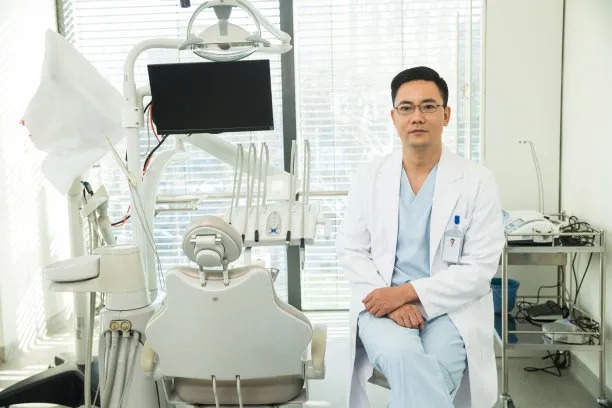Revolutionizing Smiles The Comprehensive Benefits and Innovations of Dental Implant Treatment for Lasting Dental Health
Summary: Dental implants have emerged as a revolutionary solution for restoring smiles and enhancing dental health. This article delves into four key areas: the functional benefits of dental implants, their aesthetic advantages, the innovative technology behind their design and placement, and their long-term impact on oral health. Each section highlights the transformative effects of dental implants for individuals suffering from tooth loss, illustrating how these treatments not only improve functionality but also elevate confidence and quality of life. Through a detailed exploration of these facets, we unveil the comprehensive advantages that dental implants offer, reinforcing their position as a cornerstone of modern dentistry.
1. Functional Benefits of Dental Implants

One of the primary advantages of dental implants is their remarkable functional capability. Unlike dentures or bridges, dental implants are anchored directly into the jawbone, providing a level of stability and strength that is comparable to natural teeth. This secure foundation enables individuals to chew and speak with confidence, eliminating the discomfort often associated with loose-fitting dentures.
Moreover, dental implants allow for a more diverse diet, enabling patients to enjoy various foods without the fear of damaging their artificial teeth. Patients report significant improvements in their ability to eat, leading to better nutrition and overall well-being, which is especially crucial for long-term health.
Additionally, dental implants support neighboring teeth and maintain the jawbone structure, preventing the bone loss that frequently occurs after tooth extraction. This structural integrity is crucial not only for functional efficiency but also for preserving facial aesthetics over time.
2. Aesthetic Advantages of Dental Implants
The aesthetic appeal of dental implants is one of their most striking benefits. Designed to resemble natural teeth in both form and function, implants can be custom-made to match the color, shape, and size of the surrounding teeth. This results in a seamless integration into the patient’s smile, significantly boosting self-esteem and confidence.
Patients who have undergone treatment often note a reduction in self-consciousness about their appearance, feeling freer to smile and engage socially. Unlike removable dentures, dental implants do not shift or slip, providing a secure and attractive solution that enhances facial contours and overall facial symmetry.
Furthermore, the ability of dental implants to restore natural facial structure aids in reducing the sagging or sunken appearance that can occur with tooth loss. This improvement not only enhances aesthetics but also positively influences how patients perceive themselves and how they are perceived by others.
3. Innovative Technology in Implant Dentistry
The advancements in dental implant technology have revolutionized the way these procedures are performed. State-of-the-art imaging techniques, such as 3D scans, allow for an accurate assessment of jawbone structure and the precise placement of implants. This ensures optimal outcomes and minimizes complications during surgery.
Additionally, the use of biocompatible materials in implant fabrication has improved the longevity and success rates of dental implants. These innovative materials integrate seamlessly with natural bone tissue, enhancing stability and reducing the risk of rejection.
Digital workflows in implant dentistry further streamline the process, from treatment planning to placement. CAD/CAM technology enables the creation of custom abutments and crowns that fit perfectly, resulting in a quicker and more efficient treatment process. This technology not only shortens recovery times but also enhances the overall experience for patients.
4. Long-term Impact on Oral Health
Lastly, dental implants significantly contribute to long-term oral health. By replacing missing teeth, they help maintain jawbone density and prevent the shifting of adjacent teeth, which can lead to misalignment and other dental issues. This preventive aspect contributes to more comprehensive oral health, reducing the likelihood of future problems.
Furthermore, dental implants are easier to maintain than traditional restorations. Good oral hygiene practices, including regular brushing and flossing, are sufficient to keep implants healthy, requiring less frequent dental visits and interventions compared to dentures that need more care and adjustments.
By prioritizing long-term oral health, dental implants embody not just a cosmetic solution, but a commitment to maintaining a patients overall quality of life. The focus on sustainable dental practices ensures that patients enjoy the full benefits of their investments for many years to come.
Summary:
In conclusion, dental implants serve as a groundbreaking solution for those facing tooth loss, offering extensive functional, aesthetic, and long-term health benefits. The innovative technologies involved in their design and application ensure a satisfactory patient experience, resulting in a revolution in the realm of dental care. Their ability to harmoniously integrate with natural teeth allows for an improved quality of life, inspiring confidence and comfort in everyday interactions.
This article is compiled by Vickong Dental and the content is for reference only



